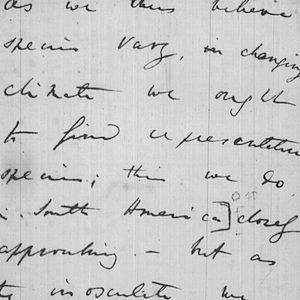-
-
Step-by-step course guide
-
What you will learn in this course
-
About the course: David Kinney & Simon DeDeo
-
Introducing the course Teaching Assistant
-
Join the discussion
-
-
-
Introduction to Humanities Analytics
-
-
-
-
Analyzing "Excellence" in the Humanities
-
-
-
-
-
-
Case Study: Capitalism & Democracy
-
Chapter 5 part 1 Overview
-
The Marriage of Capitalism & Democracy part 1
-
Test Your Knowledge part 1
-
Test Your Knowledge part 1: Explanations
-
Chapter 5 part 2 Overview
-
The Marriage of Capitalism & Democracy part 2
-
Test Your Knowledge part 2
-
Test Your Knowledge part 2: Explanations
-
Assignment: Case Study: Capitalism & Democracy
-
-
-
-
-
Measurement & Operationalization
-
-
-
A Philosophical Approach to Probability
-
-
-
Guest Lecture: Marco Buongiorno Nardelli
-
-
-
-
-
Guest Lecture: Nan Z. Da
-
-
-
Wrap-Up
-
What's Next
-
10.1 Measurement & Operationalization » Chapter 6 Overview
What you will learn in this chapter
You will be introduced to a more philosophical understanding of the concept of measurement. You will also be given a conceptual framework for mapping the relationship between reality, noise, measurement, interpretation, and understanding. This conceptual framework will be illustrated using the philosopher and historian of science Hasok Chang's case study of the history of temperature. Finally, the lessons of this case study and broader reflections of the philosophy of measurement are applied to Chapter 5's study of the relationship between capitalism and democracy, so as to begin an investigation of the philosophy of measurement in a humanities analytics context.
Key terms to keep in mind
Noise A process of distortion in the measurement process that is responsible for measurements of some system not precisely matching the "ground truth" or reality of that system. If there is too much noise in a measurement process, then it is possible to lose all correlation between reality and measurement. However, in most successful real-world cases of measurement, noise is not eliminated from the measurement process but is instead managed, so that measurements are still reliably correlated with reality, though the correlation is not perfect.
Thermometry The study and practice of using thermometers and other devices to measure the temperature of environments and substances.
Operationalism Philosophy of meaning and measurement according to which a scientific concept only has meaning if we have a reliable methodology for detecting the presence of that concept or measuring the degree to which that concept obtains in a given case.
Imposition of meaning A process whereby a researcher's choices about how to measure some aspect of reality shape that researcher's understanding of what reality is.
Move to the abstract A historical process whereby our understanding of a concept becomes advanced enough that this understanding is no longer determined by our particular method of measurement. Instead, the concept is defined in a way that makes no mention of measurement. In the history of the understanding of temperature, the move to the abstract is argued to have occurred when we began to understand temperature as the mean kinetic energy of the molecules in a substance or environment, rather than in terms of any particular process of measurement.
